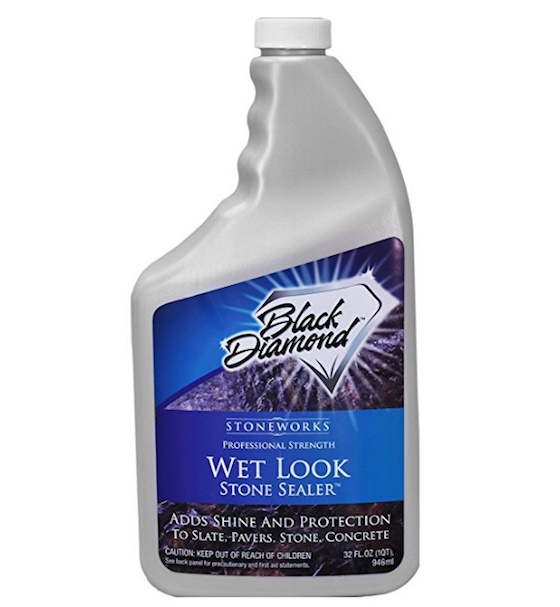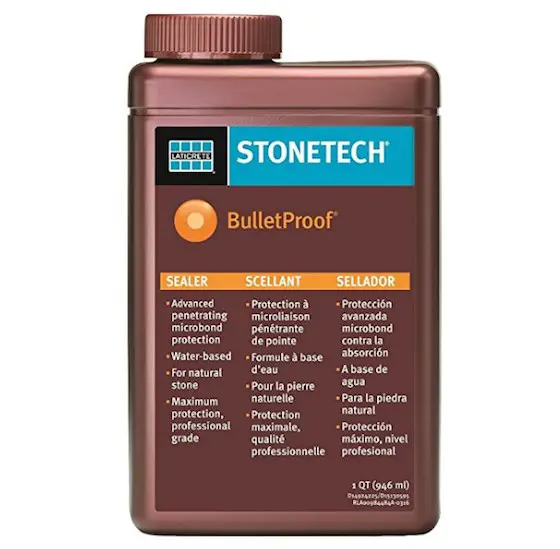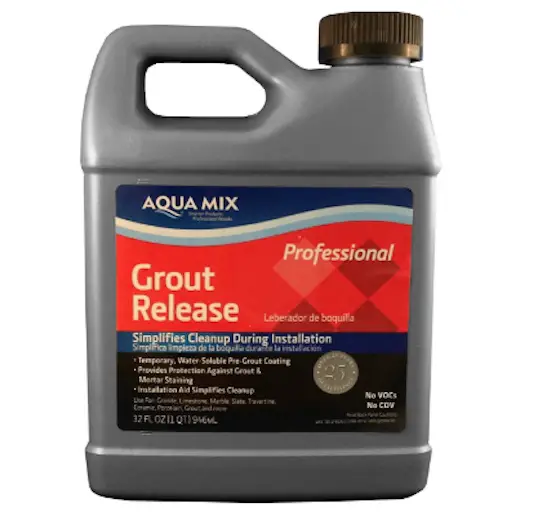Slate Flooring Installation and Sealing
Slate Flooring Installation TIPS
- Slate is extremely durable - it can be used outdoors in cold climates
- Resists most stains
- Be careful about wet-look sealers - test before you commit
- Use thinset to install slate - never use organic mastic
- CLICK HERE to Get Tim's FREE & FUNNY Newsletter!
When I first got into the construction business, I used to think that slate flooring was only used in expensive houses.
Slate Is Affordable
After all, that was usually where I found it. Then one day, I bid a job that required slate flooring. I was astonished! Slate was very affordable. In fact, it compared in cost to some of the low to mid quality floor tiles.
My First Install
I was awarded the contract for that job. Fortunately, there was not a large area that required slate flooring.
I decided to tackle the installation myself. With the advice of some professional tile setters, my slate job was a success. It installed very much like normal ceramic tile. Both the homeowners and I were satisfied with the final product.
CLICK HERE to get FREE & FAST BIDS from local slate flooring contractors.
Red Slate Sun Room
Since that first job, I have installed thousands of square feet of slate flooring. The last slate I installed was the solid red slate in my wife's sun room. The job came out absolutely amazing.
Walking On Stone
If you're part of the green building movement, you have to love slate flooring. It's not manufactured, it is quarried.
There are vast deposits of this wonderful stone product all over the word. In the USA, numerous quarries can be found in the Appalachian Mountains. There are no factories that produce fumes or harmful by products.
Stain Resistant
Slate is naturally stain resistant. This quality is related directly to the composition of the stone.
Slate begins its life as a sedimentary rock consisting of very fine particles of clay and silt. It's commonly known as shale.
However, this shale is sometimes buried underneath other rocks. This burial process creates heat and pressure. The resulting product is slate, a more compact and dense rock than shale.
Multi-Colored Beauty
Slate is very beautiful. This beauty, I feel, is based on its unusually deep colors of black, red, green, gray, and sometimes purple. The slate also has a texture unique only to itself.
The thin bedding planes of silt and clay create natural cleft faces when the clay is quarried. These cleft faces provide the slate with built in slip resistance.
Multiple Applications
Many people know that high quality pool tables have a thick layer of slate just below the felt. This is why the pool table is so true and smooth. Just drop a billiard ball on the table and listen to that solid sound! This same solid surface can be used as a kitchen countertop, a fireplace hearth, a fireplace surround, stair treads, bar top, even a decorative side table top.
Slate is available in different thicknesses and shapes. I happen to prefer the random ashlar pattern. The pattern is anything but random. However, when you assemble the six different shapes, it sure looks random.
I happen to walk across this flooring everyday in my own entrance hall. It's very durable and attractive.
Slate is commonly available in square pieces or irregular shards that require hand trimming on the job site. Slate installed in this manner resembles traditional flagstone work. If done by a professional, it is extremely attractive.
Slate Care Products
Although slate is very stain resistant, some liquids and foods can stain slate. In the past, homeowners were told to wax slate. I have seen this done time and time again. Waxing slate is a mistake. It detracts from the slate's natural beauty, makes the slate slippery, and can discolor the slate (the slate doesn't turn color, just the wax turns yellow!).
Within the past 15 - 20 years, new synthetic sealers have been developed which seal slate but do little or nothing to alter its appearance. These sealers often contain acrylic plastic compounds which are clear and non-yellowing.
Some of the best products on the market impart a "wet" look to the slate which really brings out the true color of each individual piece. These are the sealers to purchase.
Beware of slate care products that do not penetrate the slate. Some of these sealers form a surface film on the slate which can yellow, scuff, and reduce the natural slip resistance of the slate.
You must do your homework and ask these questions or look for the answers in the sealer literature. Don't necessarily trust a salesperson!
CLICK HERE to get FREE & FAST BIDS from local slate flooring contractors.
Existing Waxed Slate
If you have an existing slate floor that has multiple coats of wax, don't despair! We can bring it back from the edge of oblivion. The first thing to do is remove the old wax with a standard wax remover. Wax removers are very alkaline and simply soften the wax. You normally mop these products on, let them sit for a few minutes, and then remove with another mopping.
Be careful not to get this stripper on any painted woodwork, stained baseboard or trim, adjacent carpeting, hardwood, etc. It is a vicious product! I recommend that you work in small areas and do it by hand. It may take several applications to remove all of the wax from the grout joints.
Be careful not to flood the floor with water or stripper. Water may work its way beneath the slate and swell the wood subfloor (that is, if you have a wood subfloor). Only use enough stripper or rinse water to sufficiently cover the area you are working on.
After you have removed the wax, you should clean the slate and the grout with a neutral pH cleaner. This is very important. Many of the slate sealer companies also sell these special cleaners.
Once the floor is clean, it should dry for several days before sealing. The sealers work best when they can penetrate into the slate.
Read Instructions
Absolutely take the time to read the instructions on all the products you use. I find this to be the biggest reason for poor results on projects. Homeowners and contractors alike seem to resist reading instructions thoroughly.
If you follow the instructions found on a quality product, you will be rewarded with a gorgeous final product. Take the extra 10 minutes and read them. Then, be sure to follow the directions to the letter. Contact me with any questions!
Slate Sealer
You may want to seal your slate, but realize doing this could take away it's gorgeous matt finish. Some people really like the wet-look sealers.
These can make the slate slippery when wet and they require periodic re-coating.
CLICK HERE to get FREE & FAST BIDS from local slate flooring contractors.

Here's a wet-look slate sealer. I'd test it on a scrap piece of slate before committing to doing the entire floor. CLICK THE IMAGE NOW TO BUY THIS SEALER.

Here's a sealer I've used that penetrates into the stone. Realize it's somewhat hard for something to penetrate into slate. Test it to make sure you like the look. Wait 24 hours to see what it looks like. CLICK THE IMAGE TO BUY THIS SEALER NOW.
Slate Installation
Slate installs virtually the same as any ceramic floor or wall tile. It requires a solid floor system beneath it, such as concrete or a very firm wood floor system.
Wood floor systems that are spongy or bounce can lead to cracks in the individual slate pieces or the fracturing of the grout between them.
Cement Board On Wood
When I have installed slate on wood subfloors, I have had the best success when I install the cementitious boards on top of the wood subfloor. These materials are usually 1/2 inch thick and are simply concrete sandwiched between two pieces of fiberglass mesh
Old slate installations were installed on a similar "mud" bed of cement poured between floor joists. You can still do this if you want, but it is very labor intensive.
Set In Thinset
Always be sure to install the cementitious board according to manufacturers recommendations. Most people including builders and remodelers do not install this product correctly. It requires a layer of thinset mortar to be applied wet between it and the wood subfloor. Plus, the nailing pattern is critical.
No Organic Mastic
Once you are ready to install the slate, use thinset mortar. It works much better than organic adhesives, in my opinion. Organic adhesives never really get hard. As such, there is always a little give under them.
If you drop a heavy object or concentrate a load, an individual slate piece may crack. This doesn't happen very often with thinset. It gets very hard within a matter of days.
Use Diamond Saw
Slate cannot be scored and "snapped" like ceramic tile. It requires a wet diamond saw or a regular hacksaw if you're working with thin (3/8 inch or less) pieces.
Plan Your Layout
As with any flooring product, the layout is critical. Work off a center line in the room or a hallway for the ultimate look. Snap a chalk line and work away from the line. Try to plan your work so that you do not have to cross or work over freshly set pieces of slate.
Remove Wet Thinset ASAP
Be sure to wipe up thinset that gets on the surface of the slate. Remember, thinset is really cement. If it gets hard, you will have problems!
If you can afford the luxury, try to have a helper. You will need pieces cut, thinset mixed, slate handed to you, etc. You will get more than twice the amount of work done that you could do individually.
Grouting Slate
Grouting slate is a challenge. Unlike glazed ceramic tile, the grout wants to adhere and stick on the surface of the slate.
Very Hard To Do
The natural cleft face traps the grout very effectively. On average, I would say it takes 4 times longer to grout a slate floor than a similar sized tile floor.
Go Light On The Water
You must be careful when grouting slate not to use too much water in the grout rinse sponges. For one, you can weaken the actual grout if too much water dilutes the cement. Also, most slate floors employ a dark colored grout.
My entrance hall, for example, has a raven black grout. Use too much water and a grout additive, and you end up with light and dark areas in the finished grout. Ask me, I know it for a fact!
Do NOT Use Additives
Milky grout additives can cause blotchy discoloration in the grout. Do NOT USE THEM.
Grout Release Coatings
Some of the companies that make the slate sealers make a special product you coat the slate with prior to grouting. This product makes it easier to remove the grout from the surface of the slate. I've used them and they do work on slate.

Here's a wonderful grout release product that can save your bacon if you're a rookie DIY tile installer. CLICK THE IMAGE NOW TO BUY THIS GREAT PRODUCT.
Sanded Grout
Be sure to use a sanded grout. Unsanded wall grout should not be used in joints wider than 1/8 inch. Most slate joints are 1/4 to 5/16 inch wide. Don't seal your new slate floor for 30 days. Cover the floor with red rosin paper. Don't tape the rosin paper to the slate!
CLICK HERE to get FREE & FAST BIDS from local slate flooring contractors.
Column B105
8 Responses to Slate Flooring Installation and Sealing